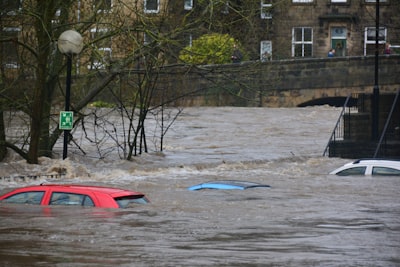Homes can flood in many severe weather situations. Water damage might prove to be some of the most expansive and expensive damage any homeowner can face. Before a flood strikes, homeowners should do what they can to prepare for such events. What are some of the protective measures you should take? 
Often, you have very little time to prepare for flooding. So, you should be able to step into action quickly to avoid the problem.
Why You Need to Protect Your Home
It’s often best to avoid building or buying homes in flood-prone areas, as the risk of damage is exponentially higher than it is in other areas. Yet, there is no way to contain floods, and flooding might exceed the flood plains or flood zones. When they do, homeowners in the way have very few options to protect their homes. Preparation is key.
Flood insurance should be a homeowner's priority in the event of these losses. Still, most standard homeowners insurance policies doesn’t cover weather-related flooding. While the National Flood Insurance Program and private insurers make specific flood coverage available, relatively few homeowners procure it.
Some homes don’t realistically need flood coverage, but others do. Ask your Anderson Insurance Consultants agent if you have a way to get coverage. Ask if they recommend coverage on your property. And don't forget to take steps to prevent such losses.
Keeping Your Home Secure
Flood safety and preparation is important for any homeowner, even those who don’t live in flood zones. Any type of water damage might inconvenience you. Here are a few things you can do to prepare.
- Make sure the home’s gutters and drainage ditches remain clear. Any of these that have clogs or broken areas won’t allow water to flow away from the home. This raises the risk of backups.
- Keep up regular maintenance of the seals and foundations. This can help keep rainwater from seeping into the home.
- Keep flashlights, a power generator or other artificial light on hand. This can help homeowners in case of power outages.
- Keep up transistor radios, cell phones or other emergency devices. These can ensure better communication with authorities during floods.
- Keep a supply of fresh water (bottled) and non-perishable items on hand. Homeowners should also keep a small first aid kit on hand. Store these items in a waterproof area.
- Cover furniture and other damageable items. Move these items to the highest level possible before floods.
- If needed, construct artificial dams, sandbags, and plywood over doors and windows to stem the flow of water. You can get most of these items at your hardware store.
Should flood warnings lead to evacuation orders, do not ride out the storm. Nothing in your home is worth risking your life for. Take any mementos with you, and contact your agent when you return. They can help you through the recovery process.